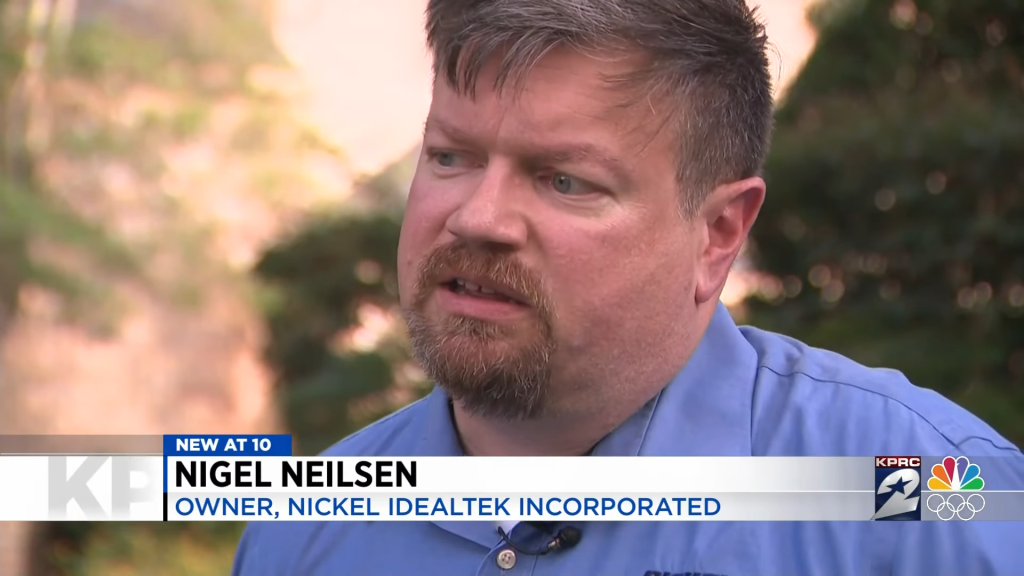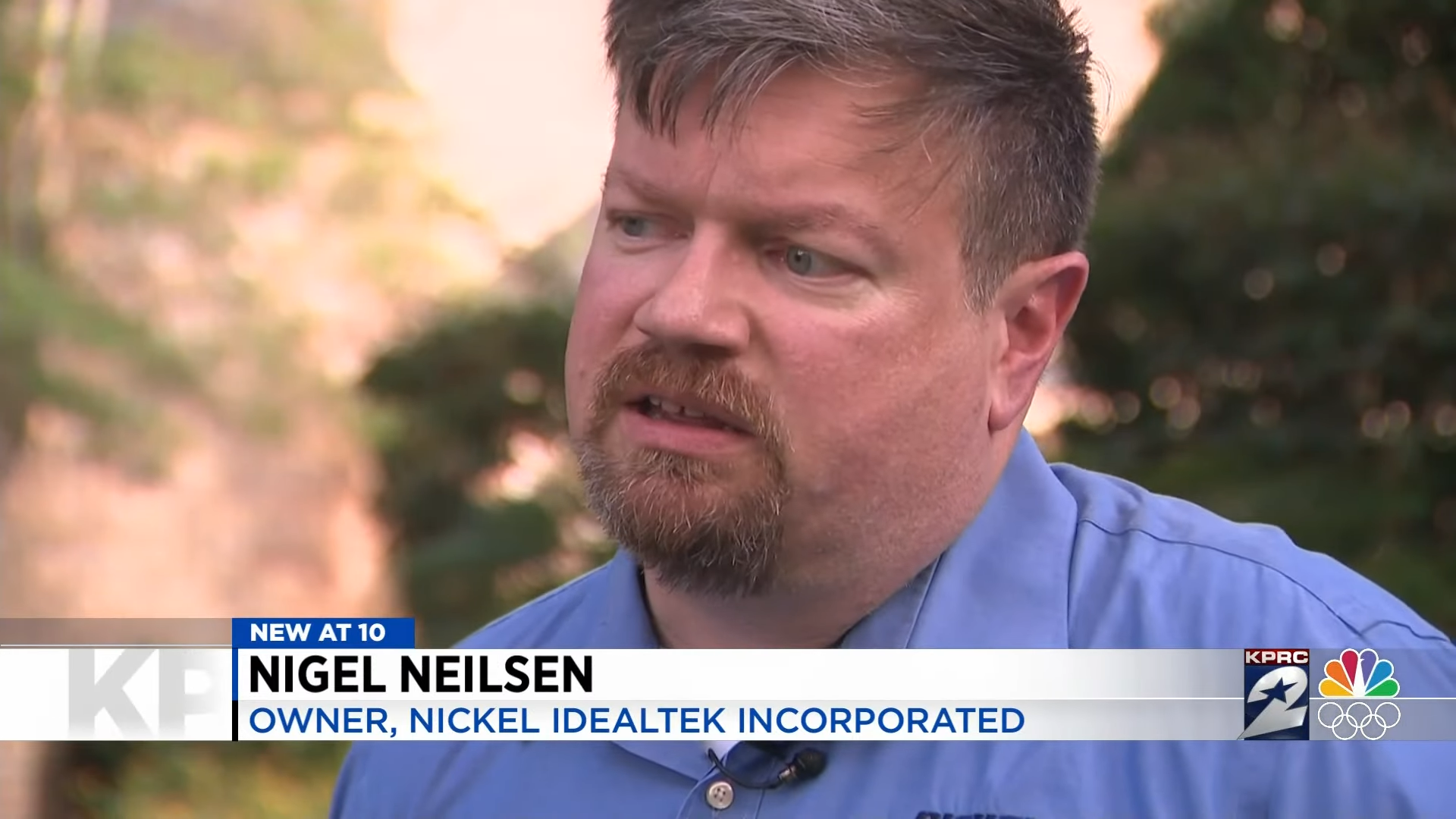As the CEO of Nickel Idealtek, a local IT company in Houston, I’ve witnessed my fair share of challenges in cybersecurity. Recently, I had the privilege to share my expertise in a cyber attack that took place at Klein ISD in an interview with Click2Houston.com.

This incident was particularly concerning as it was orchestrated by an 18-year-old student. It disrupted the STAAR testing for thousands of students across the district. It’s a stark reminder of the vulnerabilities that schools face and the importance of robust cybersecurity measures.
The Attack Unfolds
On April 16th, a Klein Forest High School student unleashed a digital disruption. Using a school computer, they initiated a Distributed Denial of Service (DDoS) attack, effectively shutting down the school’s internet. This type of attack is like a restaurant being overrun by a crowd of people who have no intention of ordering anything. The restaurant, with its limited capacity, becomes overwhelmed, preventing legitimate customers from being served.
Picture this: over 3,000 students were diligently working on their STAAR tests when suddenly, the internet crashed. All their hard work vanished, leaving them to restart with frazzled minds and frustrated spirits.
The Easy Execution of a Disruptive Attack
It is alarming how easy and inexpensive it was to carry out such an attack. The student spent about $20 and a few minutes disrupting the entire district’s testing process.
The attack continued for two more days, affecting an additional 700 students on April 17 and causing service interruptions at Klein Forest High School on April 18. In total, these disruptions impacted 24,279 students across the district.
Investigating the Breach
When Klein ISD administrators questioned the student, he admitted to accessing the websites that facilitated the DDoS attacks. He utilized a link creator site to collect IP addresses of anyone who clicked on it.
This information was then used on a network stress tester site hosted in Sweden, which lacks safeguards and is often used for malicious purposes. The student manually entered the school district’s public IP address into the attacking website, a deliberate action that required intent and understanding of the process.
Implications for Schools and Cybersecurity
This incident underscores several major problems. First, it shows how easily these attacks can happen. This proves that schools need stronger cybersecurity measures. Schools need to do more to keep their networks safe, watch them closely, and have a plan for dealing with problems right away.
Second, this attack has big effects that go beyond the immediate chaos. The Texas Education Agency could lower Klein ISD’s Accountability Rating, which could hurt the district’s reputation and cut into its funding. The education of thousands of students was affected, which shows how far-reaching the effects of cybersecurity breaches can be.
Short terms Solutions:
Think of a DDoS attack like a digital traffic jam clogging up your school’s internet highway. One way to prevent this is by using an “internet scrubber.” This tool acts like a traffic cop, spotting and removing the troublemakers before they cause chaos. By stopping the attack in transit, the scrubber keeps the internet running smoothly for everyone.
Another important strategy is to create multiple “escape routes” for your internet traffic. By spreading the traffic across different service providers, you avoid putting all your eggs in one basket. If one route gets blocked or overloaded, the traffic can simply take a detour, ensuring that everyone stays connected and the school’s online activities aren’t disrupted.
Moving Forward: Strengthening Cybersecurity in Schools
Ensuring the safety of our schools requires a comprehensive strategy. Nickel Idealtek Inc. suggests several measures that can be taken to improve cybersecurity in educational institutions, including:
- Enhanced Monitoring and Detection: Implement advanced monitoring tools to detect unusual traffic patterns and potential threats in real-time.
- Regular Security Audits: Conduct regular audits of the network infrastructure to identify and address vulnerabilities before they can be exploited.
- Staff and Student Education: Educate staff and students about cybersecurity best practices, including recognizing phishing attempts and the importance of secure passwords.
- Robust Incident Response Plan: Develop and maintain a comprehensive incident response plan to quickly address and mitigate the impact of any cyber attacks.
- Invest in Advanced Security Solutions: Utilize firewalls, intrusion detection systems, and other security technologies to create multiple layers of defense against potential attacks.
The recent incident at Klein ISD is a wake-up call for schools everywhere. It’s a harsh reminder that even the most basic cyberattacks can have serious consequences. But there’s good news: by taking proactive steps to strengthen cybersecurity, schools can do a lot to protect their students and create a safe and productive learning environment.
At Nickel Idealtek Inc., we’re committed to helping small business boost their cybersecurity. If you have any questions or need assistance with your cybersecurity needs, please don’t hesitate to reach out. Together, we can make our community safer for everyone.

I recognize the challenges involved in aligning all aspects of your business and bringing your I.T. systems and software up to the desired standard. Not every business possesses the in-house resources necessary for this transformation, and time constraints due to existing workloads further complicate the process.
With over 24 years of experience, I have been effectively managing I.T. solutions for businesses in the Greater Houston Area. My goal is to alleviate the burden of I.T. complexities, allowing businesses to refocus on their core strengths and, ultimately, thrive.

